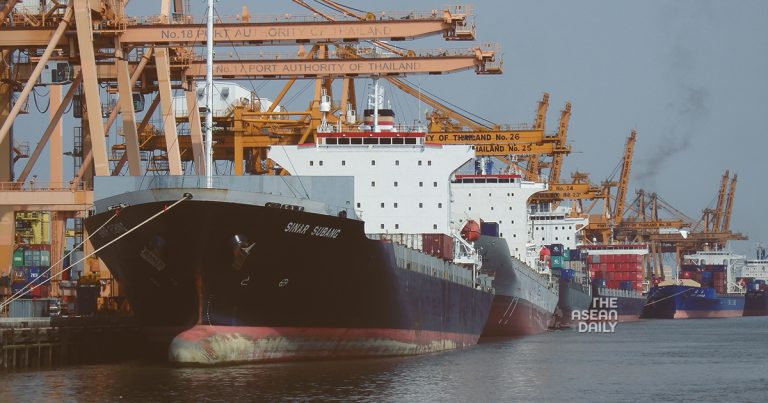18-10-2023 (BANGKOK) Thai exports are poised to recover and experience a growth rate of 3.6% in 2024, following a projected decline of 2% in the current year, as per the latest forecast from the University of the Thai Chamber of Commerce (UTCC).
UTCC President Thanavath Phonvichai credits this optimistic outlook to a combination of factors, particularly the alleviation of inflation and decreasing interest rates in various countries, which is expected to boost the demand for Thai goods.
In an effort to facilitate this resurgence in exports, Thai government agencies have outlined a series of strategic policies set to take effect next year. These policies include harnessing soft power to enhance the value of shipped goods, addressing barriers in border trade, and making more extensive use of free trade agreements.
Mr. Thanavath expressed his optimism, stating, “Thai exports have been steadily recovering throughout the fourth quarter of this year, and we anticipate this upward trajectory to become more evident by mid-2024. We firmly believe that exports will play a substantial role in the Thai economy in the coming year.”
He added, “If the sector indeed grows by the projected 3.6%, we can expect outbound shipments to reach 300 billion baht in the next year.”
One of the pivotal stimulus measures planned for 2024 is the distribution of funds through digital wallets, a move anticipated to stimulate economic growth in the country. The UTCC forecasts that the Thai economy will expand by an impressive 4.5% to 5% in 2024.
However, there are lingering concerns and potential risks for the export sector in the following year, mainly due to the uncertain global economic conditions, cautioned Mr. Thanavath.
Both the International Monetary Fund (IMF) and the Organisation for Economic Co-operation and Development (OECD) foresee a slowdown in the global economy in 2024. The IMF predicts global growth of 2.9% in the coming year, down from 3% in the current year, while the OECD anticipates growth of 2.7%, also a decrease from the present 3%.
In the backdrop, the US economy contends with challenges such as high interest rates and rising unemployment, while China grapples with its real estate challenges, subdued consumer spending, and dwindling confidence in the private sector, particularly in terms of investments.
Furthermore, the baht is anticipated to strengthen, particularly as the United States is expected to cut interest rates in the coming year. The increase in income from tourism may also contribute to a stronger baht compared to trading partners, which could affect price competitiveness and raise production costs and the prices of goods.
When it comes to the impact of global conflicts on Thai exports, Mr. Thanavath noted that the Israel-Hamas conflict is unlikely to have a significant effect.
However, he recommended vigilant monitoring of the ongoing Russia-Ukraine conflict, which is anticipated to persist, as well as the escalating rivalry between the United States and China in terms of trade conditions, technological competition, and supply chain decoupling.
Regarding the Israel-Hamas conflict, Mr. Thanavath projected a marginal impact on Thai exports to Israel, within a range of -0.1% to -1.7%.
The UTCC conducted an assessment of the conflict’s potential impact on Thai exports, outlining three scenarios. In the event of a prolonged conflict, which is estimated to have a 30% likelihood, the university predicts a contraction of 0.1%, with an impact on export value of $370 million.
If this prolonged conflict leads to the closure of transport routes, assessed at a 10% likelihood, the estimated impact is $850 million, resulting in a 0.3% contraction.
Lastly, in the event of the conflict spreading across the Middle East, assessed at a 5% likelihood, the impact is estimated to reach $4.77 billion, resulting in a substantial contraction of 1.7%, as projected by the UTCC.




